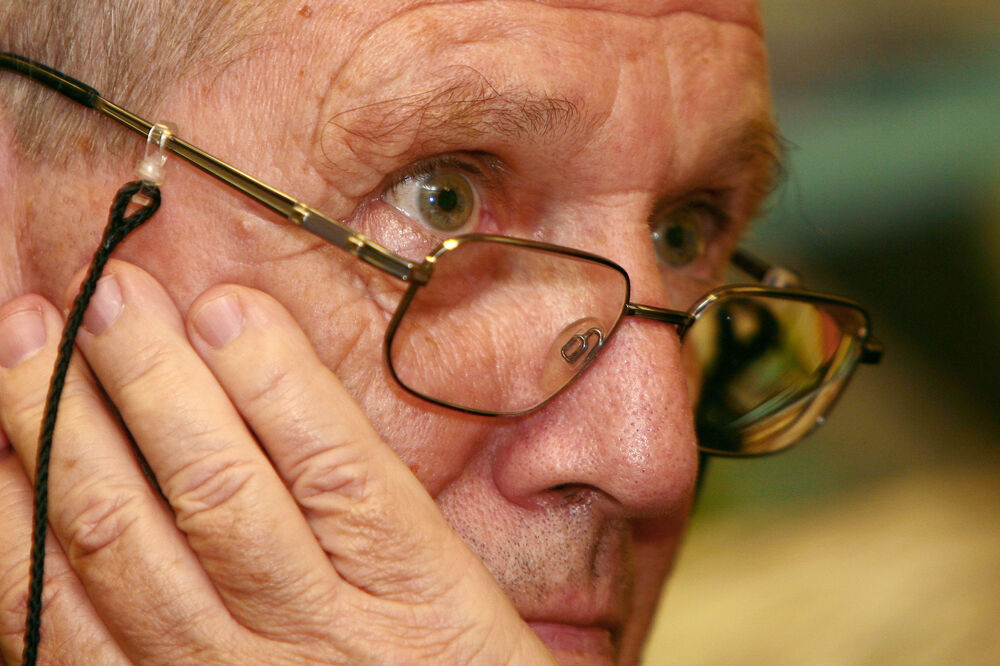I read that they closed over four thousand betting shops in Albania. The owners of the betting shops in Ulcinj must be happy, here is another development chance for the dynamic Montenegrin economy. Because I remembered the information that was published some time ago - that in Montenegro more people are employed by betting shops than all production activities combined. This detail deserves more attention than it caused: I did not notice that any of the experts dealt with such a telling piece of information. Or with a terrible diagnosis, as you wish... But betting has, no doubt, in most of the modern world, become a completely acceptable social manner. And it's no longer just about sports, horse or dog racing - today, bets on the next winner of the Nobel Prize or Oscar are also causing betting passion...
I remember, for example, that year in 2009, bookmakers convincingly gave the best chances for the Nobel Prize to an Israeli writer Amos Oz (in addition to the traditionally well-quoted Murakami). But he didn't get it, the laureate was Herta Miller.
Oz died two days before the New Year, so the impression remained that such news (the passing of a truly great writer) didn't even get proper treatment in most of the media.
His writing was a radical self-examination, on many levels - personal, family, social. Oz was the ideal person for such a thing. Raised in a Jewish right-wing family, his grandfather-uncle Jozef Klausner he was at the head of the commission that modernized the Hebrew language, thus participating in a feat above feats - the revival of a seventeen-century dead language. His grandmother Shlomit she held the first Jerusalem literary salon, where they used to come Bialik i Zhabotinsky...
His grandfather took him to political rallies Begin's right-wingers at a time when they were far from power, since Israel was created, led and (defended) by leftists.
He chose, after the shock of his mother's suicide, to change everything - from his last name to his family. He went to a kibbutz where he lived until 1989, from the age of 14 to 50. A leftist, convinced, who knew better than anyone else the essential intellectual limitations of the right. Oz has consistently advocated dialogue with the Palestinians. He was extremely critical of Israel's policies. So, quite naturally, he became - a traitor. Today, it is the most desirable possible position for a writer. As soon as you are accused of being a traitor, it means that you think for yourself and do not agree to the dictates of the so-called of higher interest.
It was not easy to accuse someone who was wounded in the Six-Day War in 1967 of being against Israel, but today's media machinery does not pay too much attention to logic. Nor to ancient honor. The same in Israel as in Montenegro.
He was a writer with a refined feeling for our time, for the age of vain spectacle. And with the awareness that such a nature of the epoch does not abolish those essential moral questions. On the contrary.
May I be allowed to recall a detail I read in Oz's great book A story of love and darkness. Young Oz, from the kibbutz, wrote the text about Spinoza which was published in the Saturday culture supplement of the leading Tel Aviv paper. The next morning, there was a call to the only phone that existed in the kibbutz. They called from the government and asked that the sixteen-year-old author of the text on Spinoza come to the prime minister's office tomorrow morning Ben Gurion. Not without fear and trepidation, the young man went to the capital. At half past seven, Ben Gurion was waiting for him in his office, and told him that he had read his article on Spinoza, so he wanted him, as an expert on the Amsterdam sage, to point out some nuances and meanings... The prime minister set aside two hours for the boy and Spinoza. Believe it or not. Imagine a space and time where something like this was possible. Then try to imagine local politicians, including prime ministers, in a similar episode. Okay, well, it doesn't have to be about Spinoza, but just imagine Njegosha as an occasion. Or Socrates... It won't work for you. You can bet on that.
Bonus video:





